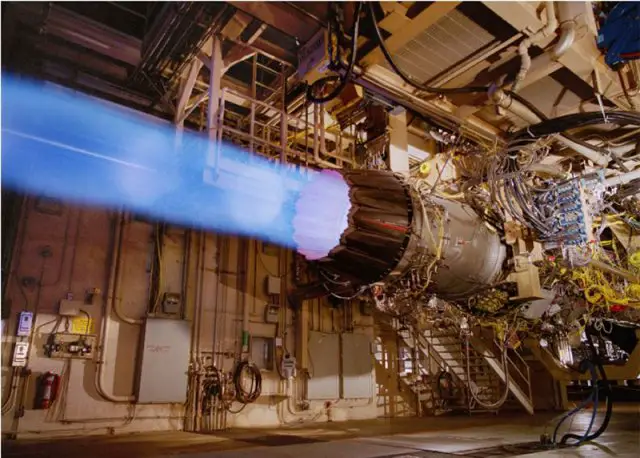Breaking news
Pratt & Whitney and United States agree for a seventh batch of F-35 Lightning II engines.
| a | |||
| |
|||
World
Defense & Security Industry News - Pratt & Whitney |
|||
| Pratt & Whitney and United States agree for a seventh batch of F-35 Lightning II engines | |||
The
Pentagon on Tuesday said it had finalized a contract with Pratt &
Whitney, a unit of United Technologies Corp, for a seventh batch of F135
engines for the Lockheed Martin Corp F-35 fighter jet, and the company
had agreed to pay to fix an engine issue that grounded the F-35 fleet
this summer, Reuters reported today. |
|||
 Pratt & Whitney F135 engine
Pratt & Whitney F135 engine |
|||
The U.S. Defense
Department said its new $592 million contract with Pratt would cover
36 engines, adding to an earlier advanced procurement contract worth
$88 million. The company also won a maintenance contract worth $263
million in December.
Pratt and the Pentagon said they expected to finalize a follow-on contract for an eighth batch of 48 engines in "the near future." Air Force Lieutenant General Chris Bogdan, the Pentagon's F-35 program manager, had expected to reach a deal on the engine contracts earlier this summer, but the talks were delayed after the engine on an Air Force F-35 failed during takeoff from a Florida air base on June 23. The incident led to the grounding of the entire F-35 fleet for several weeks and prevented the jets from making their international debut at two UK air shows. Bogdan praised Pratt's work to drive down the cost of the powerful F135 engine, and said the average price of both the conventional Air Force model and a short takeoff version built for the Marine Corps was 4.5 percent lower than in the last one. A similar price reduction was expected in the contract for the eighth batch of engines, according to the joint statement issued by the Pentagon and the company. “We continue to be laser-focused on reducing costs and meeting our delivery schedule commitments,” said Chris Flynn, vice president, Pratt & Whitney F135/F119 engine programs. As a precursor to the contract, the statement said a joint team investigating the engine failure had met and agreed on the cause of the engine failure: that prolonged rubbing of certain material in a part of the engine had led to small cracks which eventually caused the third stage fan rotor to break apart. The statement said Pratt and the F-35 program office were executing a plan to modify the current operational and test jets, and implement a long-term solution for future jets. As part of the contract for the seventh batch of jets, Pratt agreed to cover the cost of corrective actions for previously delivered engines and modules to fix the engine issue. No details were provided on the exact nature of the fix adopted, or its cost, but officials have said they did not expect the engine modifications to be very expensive. Pentagon officials are negotiating a separate contract with Lockheed that is worth about $4 billion for an eighth batch of the most advanced U.S. warplanes. Lockheed and government officials had told Reuters last month that they expected to reach agreement on that contract within days or weeks. |
|||



















